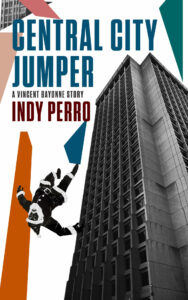Every work of fiction needs a controlling idea.
The controlling idea gives a work purpose. It acts as a true north while navigating the plot. If a story travels from beginning to end and in so doing the protagonist achieves her goal, the controlling idea tells you why things happen in between.
Writers easily fall into the trap of thinking that things happen in a story “because that’s what happens.” A writer may feel that the story goes the way it goes for several reasons.
- That’s how they saw it in their minds.
- That’s how they feel it should go.
- That’s what happens on television.
Everyone knows this is how it goes.
The issue may be that they simply don’t have a reason to write it any other way.
If a writer doesn’t know why each event happens in a story, there is no story.
A writer must know why a character walks into the kitchen, why they pick up a book and read the title, why they pick their nose, why the car is blue, and why the sky is red. Nothing happens without a reason, and every action and description in the story should serve the controlling idea.
No event is too small.
This is not to say that there is only one right answer to any given question.
If a writer feels one characteristic or another best illustrates what their character is going through, the writer should investigate why. Analyze the situation. Think it over and feel the way through it. The writer may find ways to amplify and bring to life their initial inclination.
Maybe the initial inclination was based on a memory, and if they bring to their imagination the full context of that memory, they can more clearly see the impetus for that character. Maybe the initial inclination was based on a different idea, and they need to move the story in a new direction to realize the controlling idea in full.
Ultimately, if the writer doesn’t know why something in their story is the way it is, neither will the reader.
A confused reader is an alienated reader.
Image by Dmitry Ratushny courtesy of Unsplash
DO YOU BEGIN WITH THE CONTROLLING IDEA OR FIND IT LATER? HAVE YOU EVER STRUGGLED TO DISCERN THE CONTROLLING IDEA? WHAT TECHNIQUES HAVE YOU USED TO DIG MORE DEEPLY INTO YOUR STORY? JOIN THE CONVERSATION BELOW.


